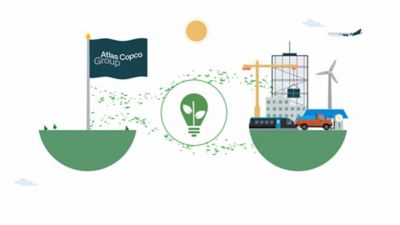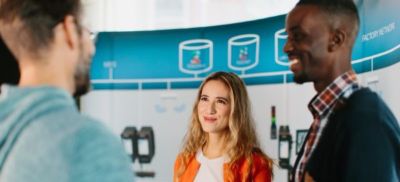Joint development is the best way forward
Atlas Copco is part of the “Wallenberg Ecosystem," set up to push scientific boundaries. The dividends we generate contribute to a flow where billions of SEK are granted to research and education, resulting in new insights for the benefit of people and industrial development. In this interview, Peter Wallenberg Jr. explains how it all works.
Since Atlas Copco was first founded in the early 1870s, our development has been tightly linked to the Wallenberg family. André Oscar Wallenberg was one of our founding fathers, and the family foundations remain our largest shareholder through their holding in Investor AB.
Peter Wallenberg Jr., Chair of KAW, Member of Atlas Copco’s Board of Directors and one of the senior representatives of the fifth generation of the Wallenberg family.
The Wallenberg family has held a prominent place in Swedish business and industrial development since the establishment of the country’s first private branch bank in 1856. The bank supported companies emerging during the first and second industrial revolutions – many of them becoming global industry leaders in their respective fields.
By making long-term investments in these companies and then granting a majority of the dividends to research and education, an ecosystem of innovation was created, built to last for generations.
This system, and the successes of each company contributing to it, now enables annual research and education grants of around SEK 2.4 billion (2020).
What is the purpose of this ecosystem, and has it always been the same?
Our Foundation’s stated purpose is to benefit Sweden by supporting basic scientific research and education. Although slightly changed in the 1920s, the direction was established already by Knut and Alice Wallenberg, who were very engaged in public development and in promoting Swedish science, trade and industry. To ensure their work could continue over time they set up a foundation that would manage the funds and hand out the grants. Over time, additional foundations have been added by, or in honor of, other family members, all in the same spirit but focused on different fields.
Today, “betterment of Sweden” (landsgagneligt in Swedish) is not restricted to geographical borders. On the contrary. The research we fund, albeit at Swedish universities, will in many cases benefit the entire world, and the science teams often consist of experts from many different countries. The results are openly shared and can be used as stepping-stones for future scientific breakthroughs. We want to help Swedish companies and science institutions get a head start, but it’s really about global collaboration for the greater good.
Atlas Copco was founded in 1873 by A.O. Wallenberg, among others, with the mission to manufacture and sell materials for railroad construction and operation. During the decades that followed, technical innovations and competition pulled the company in different directions and new technology fields, such as compressed air and power solutions. Atlas Copco has continued to grow through strategic acquisitions.





